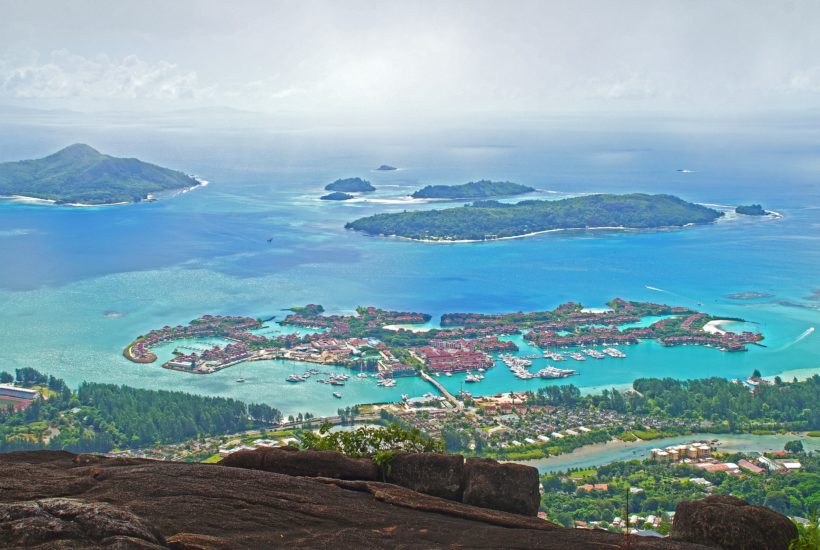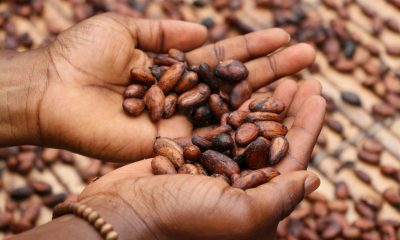Africa
IMF predicts historic recession in Africa as COVID-19 takes hold
“No country will be spared” by the crisis, warns the IMF, which forecasts a 1.6% recession in 2020, before a possible 4% rebound in 2021. The five most affected countries in the Sub-Saharan region would be Seychelles, Zimbabwe, Mauritius, Sao Tome and Principe and South Africa. The Fund recommends the countries give priority to health by devoting a larger share of their budgets to it.

“Sub-Saharan Africa is facing an unprecedented health and economic crisis that threatens to stumble the region and reverse the development gains seen in recent years,” the IMF said at the opening of the Sub-Saharan Africa Economic Outlook, COVID-19: An Unprecedented Threat to Development, released by the IMF on April 15th.
As a result of the health crisis (6,200 cases diagnosed in 43 countries) and the virtual shutdown of economies due to the protective confinement of populations, a 1.6% recession – “the worst result ever recorded” – is expected this year, compared to 3.1% growth in 2019. Oil-producing countries and countries that are highly dependent on raw materials and tourism will suffer particularly badly.
The five most affected countries would be Seychelles (-10.8%), Zimbabwe (-7.4%), Mauritius (-6.8%), Sao Tome and Principe (-6%) and South Africa (-5.8 %). Conversely, South Sudan (+4.9%), Benin (+4.5%), Rwanda (+3.5%), Uganda (+3.5%) and Ethiopia (+3.2%) are expected to remain relatively unaffected by the crisis.
Find out more details about the economic problems countries in Sub-Saharan Africa are facing because of the coronavirus outbreak and read the latest economic news with the best online aggregator, Born2Invest.
IMF recommends to Sub-Saharan Africa to give priority to health
The IMF hopes for a recovery of about 4% in 2021, if the pandemic subsides in the second half of this year. All countries would then return to positive growth, with Côte d’Ivoire registering the highest performance for Sub-Saharan Africa with a growth of 8.7%. However, IMF projections allow us to measure the extent of the damage: in 2024, the gross domestic product (GDP) per capita in the area will still be 4.5% lower than it was before the coronavirus outbreak.
The Fund recommends that the 45 countries of Sub-Saharan Africa give priority to health by devoting a larger share of their budgets to it.
It also stresses the need to support the most vulnerable categories, which are the first economic victims of containment and weakened businesses by targeting first the most affected sectors such as air transport and the hotel industry. In the absence of sufficient budgetary resources, recourse to borrowing seems inevitable and the debt burden in relation to GDP in Sub-Saharan Africa, which was expected to fall from 58% in 2019 to 56% in 2020, would rise to 64%.
The IMF welcomed the fact that many countries had taken the lead, as in the area of health, in cushioning the shock. The body encouraged Niger, which had decided to increase its budget expenditure by 7.4% of its GDP, and Côte d’Ivoire (4.7% of its GDP) to follow suit. It lists the support measures already put in place by some countries: tax reductions, longer tax payment deadlines, exemption or deferral of social security charges, cash transfers to the poorest families, aid in free water or electricity, loans at subsidised rates, suspension of loan repayments, etc.
Temporary control of capital flows is also recommended
The IMF advises central banks to relax their monetary policies (lower interest rates), provide sufficient liquidity to private banks so that they can meet the credit needs of SMEs. To counter dangerous capital flight ($4.2 billion of portfolio investment has left the region since February 2020, “an unprecedented amount”), the Fund goes so far as to advocate temporary control of capital flows where necessary.
Unfortunately, Sub-Saharan Africa, whose dynamism was still constrained since 2014 by falling commodity prices, does not have the reserves to face the crisis alone. That is why the report reiterates the pressing demands of the IMF and the World Bank, which call on the international community to provide massive assistance to countries in great difficulty. The IMF asks countries to postpone or cancel Africa’s debt, in order to enable the continent to release budgetary resources to overcome the crisis.
__
(Featured image by SCAPIN via Pixabay)
DISCLAIMER: This article was written by a third party contributor and does not reflect the opinion of Born2Invest, its management, staff or its associates. Please review our disclaimer for more information.
This article may include forward-looking statements. These forward-looking statements generally are identified by the words “believe,” “project,” “estimate,” “become,” “plan,” “will,” and similar expressions. These forward-looking statements involve known and unknown risks as well as uncertainties, including those discussed in the following cautionary statements and elsewhere in this article and on this site. Although the Company may believe that its expectations are based on reasonable assumptions, the actual results that the Company may achieve may differ materially from any forward-looking statements, which reflect the opinions of the management of the Company only as of the date hereof. Additionally, please make sure to read these important disclosures.
First published in jeuneafrique, a third-party contributor translated and adapted the article from the original. In case of discrepancy, the original will prevail.
Although we made reasonable efforts to provide accurate translations, some parts may be incorrect. Born2Invest assumes no responsibility for errors, omissions or ambiguities in the translations provided on this website. Any person or entity relying on translated content does so at their own risk. Born2Invest is not responsible for losses caused by such reliance on the accuracy or reliability of translated information. If you wish to report an error or inaccuracy in the translation, we encourage you to contact us.

-

 Biotech4 days ago
Biotech4 days agoInterministerial Commission on Drug Prices Approves New Drugs and Expanded Treatment Funding
-

 Africa2 weeks ago
Africa2 weeks agoMorocco’s Tax Reforms Show Tangible Results
-

 Fintech5 hours ago
Fintech5 hours agoPomelo Raises $160 Million to Power AI-Driven Digital Payments Across Latin America
-

 Biotech1 week ago
Biotech1 week agoUniversal Nanoparticle Platform Enables Multi-Isotope Cancer Diagnosis and Therapy
























